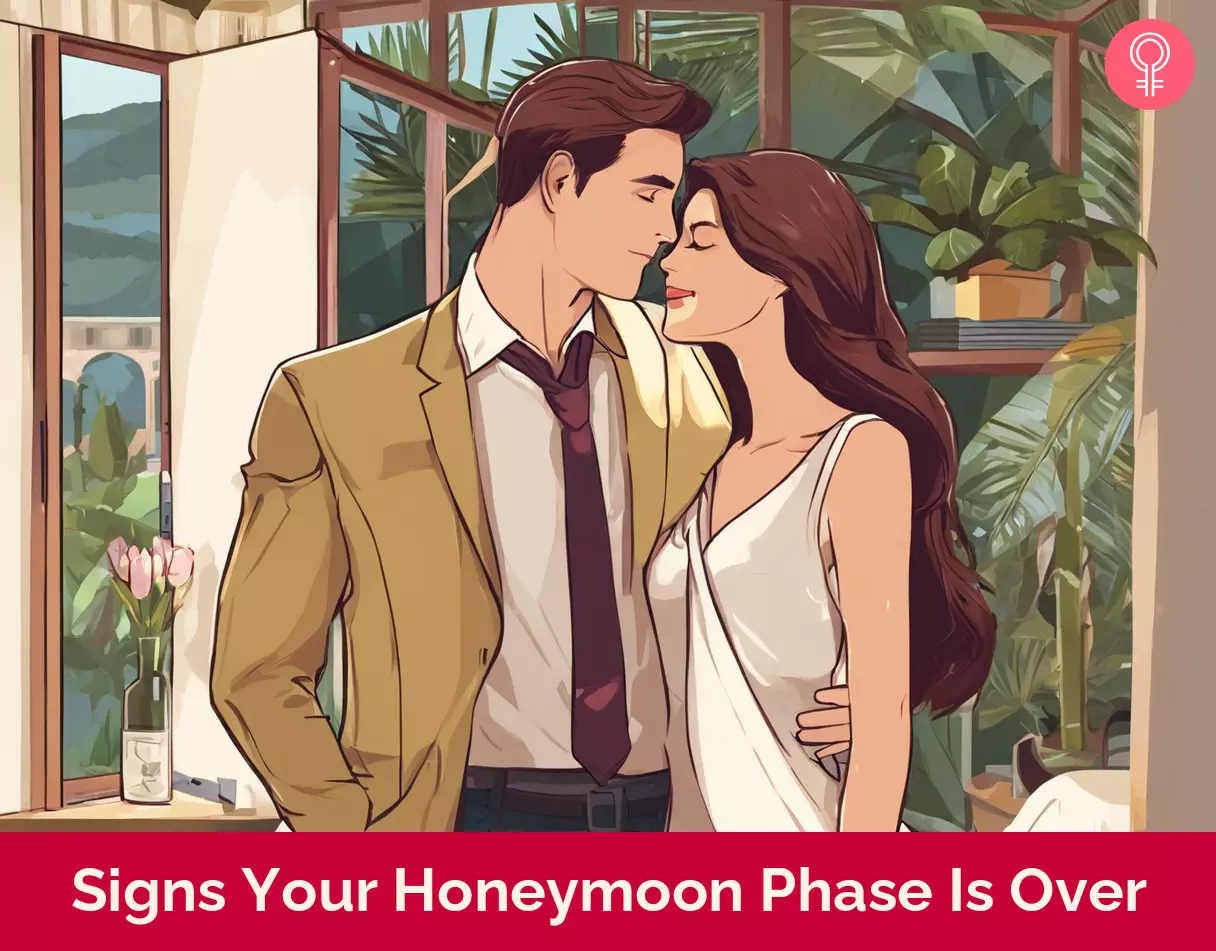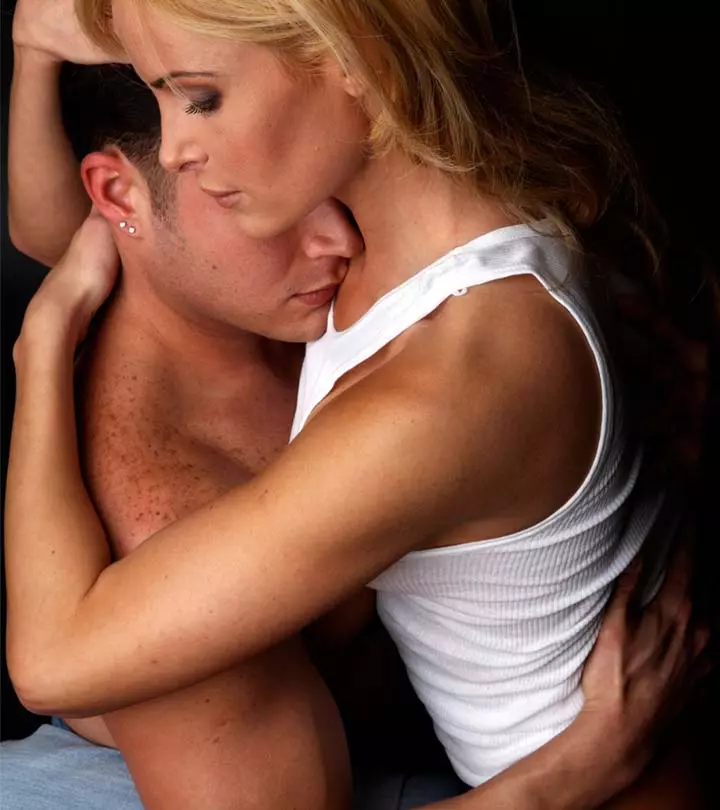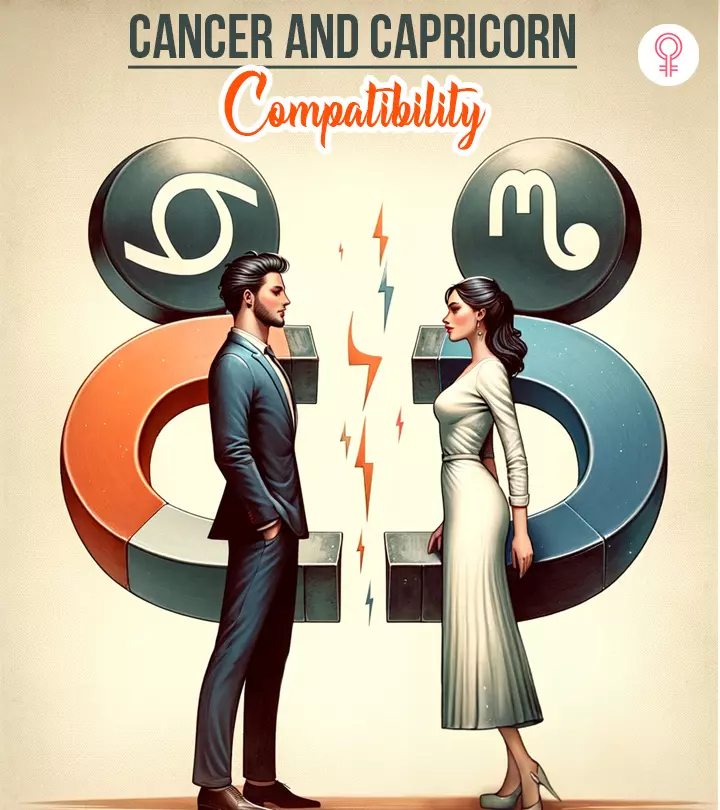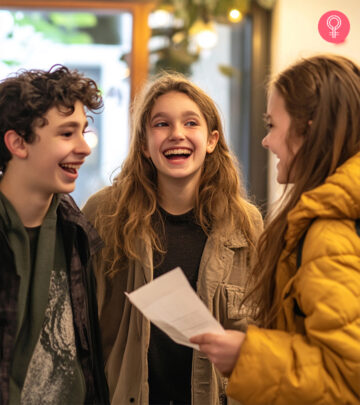Honeymoon Phase: 10 Signs It’s Over And How To Reignite Romance
Going on dates and open communication are keys to building a healthy relationship.

Image: Shutterstock
The honeymoon phase typically refers to the early months of a romantic relationship when the love is new. It is a phase where romance is still heavy in the air, and the couple enjoys fun and carefree quality time living in a fantasy world exclusive to them. Although there aren’t fixed timelines, couples enjoy a honeymoon phase that could last between six months and two years. It usually ends when one or both partners start noticing off-putting traits in the other, shattering the illusion of a flawless and perfect relationship. Sounds confusing? Do not fret. This article has covered everything you need to know about the honeymoon phase. Keep reading to know more.
In This Article
What Is The Honeymoon Phase?

A honeymoon phase is a period of bliss in a relationship when the romance is new. It is the feeling of a freshly budding mutual romance and not the duration of a relationship that defines the honeymoon phase. Therefore, a couple could go through the honeymoon phase at any point in their relationship, whether they have recently started dating, are newlyweds, or have completed a few years of married life. Some couples also experience it more than once if they had drifted apart and are trying to reignite the sparks between them. It is a very normal and obvious part of consensual relationships.
The honeymoon stage is the initial stage of a relationship marked by exciting dates, mushy interactions, daydreams of spending eternity together, zealous attempts at pleasing the partner, and a sizzling passion that can set a room on fire. It is a special and enchanting bond characteristic of a specifically new romance where the couple is solely focused on each other, conveniently ignoring the world’s harsh realities. The honeymoon phase is characterized by a deep sense of joy and an intense wish to spend time with their partner.
The reasons behind this phase are unclear, but the combination of some powerful hormones is said to drive this lustful stage. As suggested by a recent study, the feel-good hormones called oxytocin and dopamine play a significant role in developing strong feelings of love in a relationship (1). Interestingly, there is also an increase in the stress hormone cortisol. It implies that while being in love is arousing, it is also stressful. This fluctuation in hormone levels can make couples overlook the imperfections of their relationship and blindly idealize it. The honeymoon phase not only deepens emotional connections and increases happiness and physical attraction, but it also provides a significant boost to self-esteem and promotes a sense of well-being. Being happy in love and around one’s partner has a positive impact on reducing stress levels in individuals as well (2).

However, at some point, the levels will stabilize, and the honeymoon period will end. Couples will experience emotional drops as they face reality. As the intense feelings start to fade, the partners will realize their differences. This shift can confuse and lead to disappointments. However, it is an inevitable part of a new mutual romance that brings joy and excitement to an otherwise monotonous life, and hence, it is advised to enjoy it while it lasts. According to a recent study, the true personality of individuals also surfaces, which can reduce the intensity of the spark but also boosts more problem-solving discussions. These discussions often involve resolving conflicts, making joint decisions, and planning for the future, all of which contribute to a stronger bond (3). Head to the next section to know more about its duration.
Key Takeaways
- A honeymoon phase is defined by the fun, carefree, and passionate stage in a relationship when couples are blissfully ignorant of each other’s flaws.
- The honeymoon phase ends when the initial excitement of a new romance fades away, and reality takes over.
- The honeymoon may be the most exciting time for a couple in love, but it is only one stage of the relationship and does not have to mean the end of the romance.
- Past the honeymoon stage, couples have the opportunity to strengthen their bond and build emotional intimacy that will be more permanent than a phase.
How Long Does The Honeymoon Phase Last?

Some couples may experience it for as little as a few months or up to six months in the relationship, while others may experience it for over two years. The honeymoon phase is different for everybody, but one thing is inevitable: it will fizzle away.
A blogger shared her experience of going through the honeymoon phase and how she viewed it after 2 years of marriage. She said, “Let me first say that our honeymoon was fantastic and I wish I could relive it every darn day. Marriage is more than just living in this state of, “oh shoot after a year of marriage it goes all downhill.” Marriage takes SERIOUS work from not just one person but both people (i).”
One is bound to wake up from the dream of a perfect relationship at some point. And when that happens, they realize that problems in their life outside the relationship had not magically disappeared; they had only been distracted from them for a while. So, it is now time to start dealing with them while also making time for the relationship.
You know the phase is fading when partners start noticing differences in each other that they cannot overlook anymore. For some couples, it ends when the negatives start becoming more obvious than the positives, and the relationship feels like too much work. While some others simply get bored. Personal expectations and mutual interests also play a crucial role in determining whether the honeymoon phase will last long or not. Lastly, external factors such as work pressures, financial issues, and family problems also impact the phase.
 Trivia
TriviaThe honeymoon phase ends quicker for couples who stop making time and effort towards their relationship. Read on to know 10 signs that mark the end of this romantic paradise.
10 Signs That The Honeymoon Phase Is Over

1. You Don’t Obsess Over Their Cuteness Anymore
When the relationship is new, you don’t need to look too hard for adorable traits in your partner. Little things like the sound of their laughter, their dimples, their sleepy voice — everything seems endearing. But you slowly stop obsessing over them. You may still feel in love with them, but it will be different from the initial sappy days.
2. You Start Noticing Their Annoying Habits
Once you are past the honeymoon phase, you start noticing all of your partner’s annoying habits like speech impediments, chewing noises, or a particular way of laughing. Yes, it could be the same thing that was cute before! Your partner no longer seems perfect to you because you are not looking at them through filters anymore.
3. You Scarcely Give Or Receive Compliments
Compliments used to be a thing in your relationship. There was this urge to express what their presence does to you. But now, they seem overdone and redundant and forced.
4. You Don’t Daydream About Your Future Together
At first, you couldn’t stop thinking about the life you would build with your partner and how happy you would be. However, now, you and your partner are so burdened with the current problems in your life that the idea of a happy and content future seems impossible.
5. You Stop Saying “I love you”
When you were still in the honeymoon phase, you repeatedly told your partner that you loved them because it was cute – you enjoyed being fools in love. But soon, it starts getting old and feels immature. Over time, you get over the infatuation stage and may even stop feeling the love.
6. You Don’t Miss Them In Their Absence
You used to look forward to seeing your partner after a long day, but now you can’t wait for them to leave because it gets too stressful having them around all the time. You feel like you need a break from the responsibility of being a couple.
7. You Stop Idolizing Each Other’s Family
Everyone in your partner’s family was cordial and sweet for the sake of your new relationship in the beginning. But soon, everybody gets tired of being excited for you. There is nothing for them in it. They don’t try to be overly nice, and you see their true self. You start noticing irritating traits about them, too.
8. You Argue Regularly
You used to be careful and avoid arguments because you wanted your partner to feel loved and happy. After the honeymoon phase, you both become self-aware and no longer wish to hold back on your differing opinions.
9. You Don’t Recognize Your Partner Anymore
The shift from the honeymoon phase to reality brings certain changes in both you and your partner. The way your perception has changed, and so has theirs. You don’t do anything about it, and the changes get amplified over time. You feel like your partner is a different person from the one you fell in love with.
10. You Fantasize More About Your Past Than Your Future
Since the future has started looking bleak, you fantasize about the past. You don’t just think of the honeymoon phase, but you imagine never having met your partner at all, and the alternative fantasy seems more appealing.
The honeymoon phase is all about intensely pleasurable feelings. So, when your relationship starts feeling anything less or different from that, consider the end of the phase is approaching. However, it is not the end of your relationship, and you should put in consistent efforts to keep it going.
Does The Honeymoon Phase Have To End?

As mentioned earlier, the honeymoon phase’s duration varies from weeks to two years. However, while this phase is exciting and enjoyable, it is not sustainable in the long term. The initial feelings of infatuation and excitement will eventually fade, and the couple will move into a more stable and comfortable phase of the relationship. This is a natural progression in any relationship, and it does not mean that love or passion has disappeared. Rather, it is an opportunity for the couple to build a deeper connection based on shared values, good communication, and intimacy.
During this phase, the couple may also face challenges and conflicts that require patience and compromise. It is important for both partners to understand that maintaining a strong and healthy relationship requires effort and commitment from both sides.
What Happens After The Honeymoon Phase?

After the honeymoon phase, you start seeing your partner for who they really are, and you can’t help but think about what life would be like if you were still single. It makes you start comparing your current relationship to those you had before you got married. It could be an emotionally confusing time because you feel cheated — this wasn’t the kind of relationship you signed up for!
It may be especially hard for people who are fixated on the excitement and spiciness of the relationship. But it doesn’t have to mean that it is the end of the love itself. Be patient, and the initial shock will wear off. Then, you will find opportunities to build a deeper bond compared to the superficial one you had during the honeymoon period.
As the curtains fall and you are faced with reality, have an open mind and leave room for flexibility. Take courage from the fact that anything you build from this point forward will be real now that the illusion is shattered.
That being said, real relationships may not be honeymoon-y, but that doesn’t have to mean the romance is dead. You can still keep things fun, exciting, and healthy in a relationship by practicing the following tips:
- Try not to put romantic relationships on a high pedestal and have unrealistic expectations. A romantic relationship is rewarding where you are best friends with someone you are sexually attracted to — this is a neutral standard if you insist on holding your relationship to a standard.
- Try to go on a date night or indulge in other couple-specific activities at least once a week.
- Continue flirting and cuddling. Keep wooing your partner. Just because you have done it all with your partner doesn’t mean you can’t do it again.
- Be fearless in trying new things with your partner. Who knows, you may start loving them in new ways!
- Some personal issues can affect your relationship. Therefore, you must work as a team to solve them together.
- Appreciate the positives of your relationship, and at the same time, acknowledge the negatives and work towards improvement.
- Stop trying to run away at the first sign of trouble. Trust your relationship, steadfast commitment, and try resolving the issues.
- Remember, even in a relationship you are still an individual. It isn’t wrong to put yourself first where it is needed. Encourage your partner to do the same. Respect each other’s individuality.
- The most important pillar of any relationship is communication. Always be honest and transparent in communicating with your partner. Talking about your problems will help you find solutions faster.
 Quick Tip
Quick TipInfographic: 6 Things That Signal It’s Time To Move Past The Honeymoon Phase And Get Real
If only the honeymoon phase in relationships went on and on — everything would be so rosy and perfect. Fortunately or unfortunately, this is not the case. The initial excitement of meeting someone new wears off gradually, and you are left to wonder where all those butterflies went. But things don’t necessarily have to go all downhill after this. As long as you identify the clear signs that it’s time to get real with each other and deepen your relationship, you can rest assured that there are good times ahead. Check out the infographic below to learn about some of the obvious signs you need to keep an eye out for so you can work on your relationship at the right time.
Some thing wrong with infographic shortcode. please verify shortcode syntax
In A Nutshell
The end of the honeymoon phase is the first challenge a romantic couple faces. It is an intoxicatingly happy phase that has an inevitable end. Fortunately, it doesn’t need to come around just once. You could be the perfect couple that enjoys a honeymoon period once every few months! The key to keeping the romance alive is communicating with your partner and making an effort. So don’t worry if you feel slightly detached from your partner. Have faith in your relationship and try the tips we have mentioned above. You have got this!
Frequently Asked Questions
How do you keep the spark alive after the honeymoon phase?
Communicate your needs, desires, and thoughts freely with your partner to be on the same page as them. Initiate simple gestures of intimacy and be open to exploring new experiences to liven up your relationship.
Can the honeymoon phase come back?
Yes, but it involves effort to be put in from both sides to bring back your passion. Communication is the key to bringing back the spark in your relationship.
Is the honeymoon phase real love?
The honeymoon phase is a period of intense infatuation and excitement at the beginning of a relationship. While it can feel like love, it may not necessarily be the same as real love, which involves a deeper connection and a commitment to supporting each other through the ups and downs of life.
Is it normal for the honeymoon phase to end?
Yes, it’s normal for the honeymoon phase to end. Eventually, the initial rush of excitement and novelty wears off and the relationship settles into a more stable and comfortable phase. This doesn’t mean that the love is gone or that the relationship is doomed to fail.
Why do people break up after the honeymoon phase?
People break up after the honeymoon phase for a variety of reasons. Sometimes, they realize that they are not as compatible as they thought or that they have different goals and values. Other times, the stress of everyday life can put a strain on the relationship or they may simply lose interest or fall out of love.
Illustration: Signs Your Honeymoon Phase Is Over

Image: Stable Diffusion/StyleCraze Design Team
Learn how to keep the spark alive in a relationship. Discover three ways to stay in the honeymoon phase forever. Watch this video now!
Personal Experience: Source
StyleCraze's articles are interwoven with authentic personal narratives that provide depth and resonance to our content. Below are the sources of the personal accounts referenced in this article.
i. “Honeymoon Phase”https://thejoyfulmindset.wordpress.com/2019/06/24/honeymoon-phase/
References
Articles on StyleCraze are backed by verified information from peer-reviewed and academic research papers, reputed organizations, research institutions, and medical associations to ensure accuracy and relevance. Read our editorial policy to learn more.
- After the Honeymoon: Neural and Genetic Correlates of Romantic Love in Newlywed Marriages
https://pmc.ncbi.nlm.nih.gov/articles/PMC7223160/ - Intimacy as Related to Cortisol Reactivity and Recovery in Couples Undergoing Psychosocial Stress
https://pubmed.ncbi.nlm.nih.gov/30134358/ - Romantic Duration, Relationship Quality, and Attachment Insecurity among Dating Couples
https://pmc.ncbi.nlm.nih.gov/articles/PMC9820285/
Read full bio of Darrell Reese
Read full bio of Shivani Chandel
Read full bio of Shatabdi Bhattacharya
Read full bio of Sneha Tete



























Community Experiences
Join the conversation and become a part of our empowering community! Share your stories, experiences, and insights to connect with other beauty, lifestyle, and health enthusiasts.